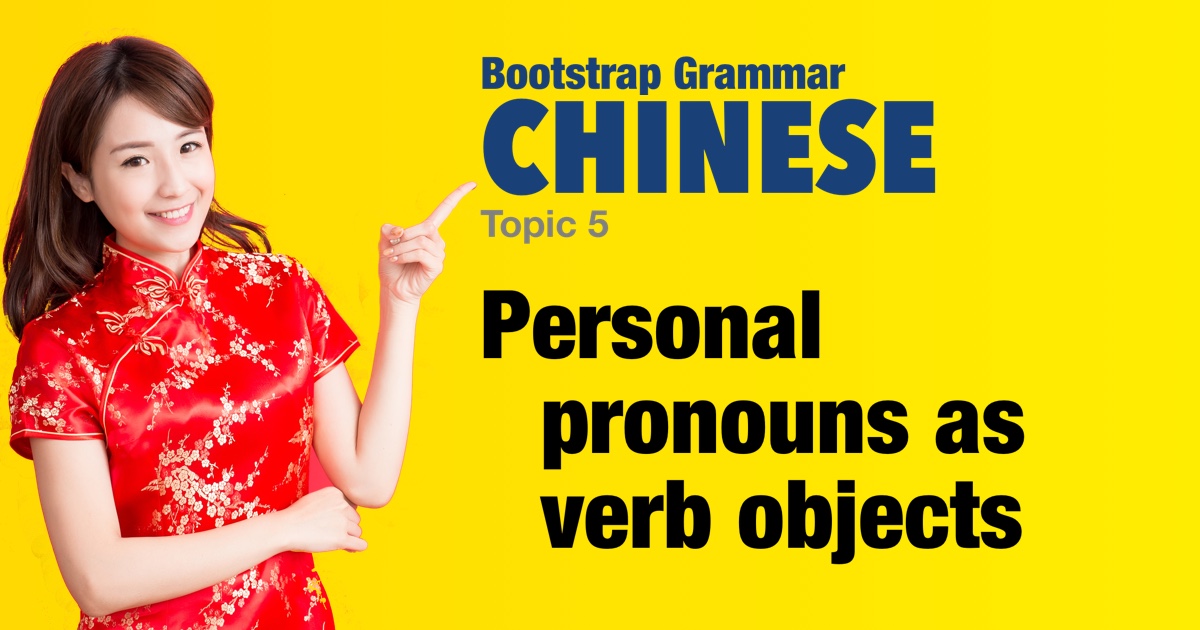Chinese grammar - Personal pronouns as verb objects |
|||
|
|||
In Chinese, personal pronouns do not change with their function in a sentence - whether they are the subject or the object. They are non-declinable (invariant). — In English, personal pronouns are declinable: we have 'I' ⇒ 'me', 'he' ⇒ 'him' etc. So in Chinese, whether they function as the subject or object of a verb, the singular personal pronouns are always 我, 你, 他 and 她. |
| Examples: | |
|
我爱你。
wǒ ài nǐ. I love you.
|
|
|
你爱他吗?
nǐ ài tā ma? Do you love him?
|
|
|
她看他。
tā kàn tā. She looks at him.
|
|
|
他找你。
tā zhǎo nǐ. He is looking for you.
|
|
|
你教他。
nǐ jiāo tā. You teach him.
|
|
|
你看我吗?
nǐ kàn wǒ ma? Do you see me? |
|
|
我看你。
wǒ kàn nǐ. I see you. |
|
|
你听我。
nǐ tīng wǒ. You listen to me.
|
|
|
我等你。
wǒ děng nǐ. I wait for you.
|
|
|
你找我。
nǐ zhǎo wǒ. You look for me. |
|
|
我教你中文。
wǒ jiāo nǐ zhōngwén. I teach you Chinese.
|
|
|
你问我问题。
nǐ wèn wǒ wèntí. You ask me a question.
|
|
|
我听你吗?
wǒ tīng nǐ ma? Do I listen to you? |
|
|
你等我吗?
nǐ děng wǒ ma? Do you wait for me? |
|
|
我找你吗?
wǒ zhǎo nǐ ma? Do I look for you? |
|
|
你教她中文吗?
nǐ jiāo tā zhōngwén ma? Do you teach her Chinese? |
|
 |
|


 Here the pronoun
Here the pronoun 
